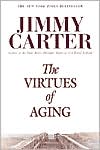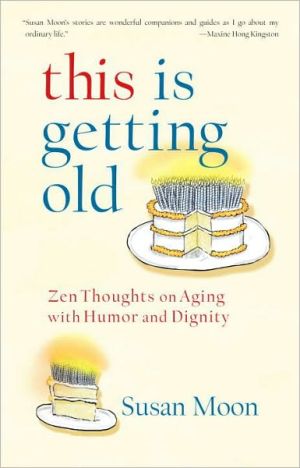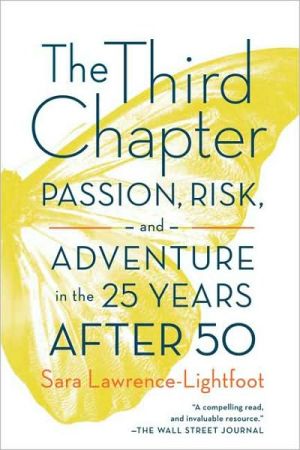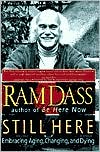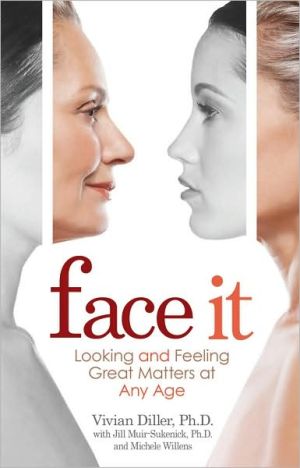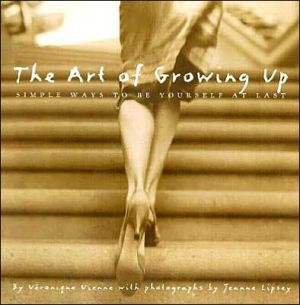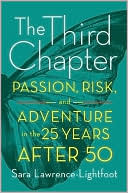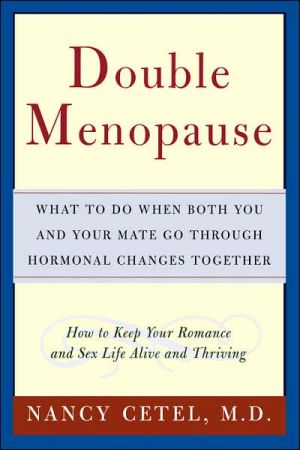The Virtues of Aging
"We are not alone in our worry about both the physical aspect of aging and the prejudice that exists toward the elderly, which is similar to racism or sexism. What makes it different is that the prejudice also exists among those of us who are either within this group or rapidly approaching it. When I have mentioned the title of this book to a few people, most of them responded, 'Virtues? What could possibly be good about growing old?' The most obvious answer, of course, is to consider the...
Search in google:
We're so used to reading about the difficulties and the disabilities associated with aging; what a refreshing change to come across this tribute to the rewards of growing older from one of the country's most respected statesmen. In The Virtues of Aging, Jimmy Carter writes with warmth and wisdom of the benefits and the opportunities age has brought to him. Publishers Weekly When President Carter's 1980 electoral defeat brought involuntary retirement, at age 56, from his position at the White House, he had no set plans for the future. According to this sprightly essay, he and wife Rosalynn, now in their 70s, have continued to lead full, active, productive lives because of their willingness to explore new commitments, their abiding refusal to be mentally dormant. Besides serving at the Carter Center in Atlanta--which they established to help negotiate peace agreements, to monitor elections in emerging democracies and to assist the elderly and mentally ill--the Carters are both university professors, and they roll up their sleeves to build at least one house per year for needy families. Further, claims the former president, they run three miles a day, take 15-mile cross-country bike rides and their sex life is "more complete and enjoyable" than ever. Carter dispenses sage advice on how older people can fashion an interesting and challenging life, strengthen interpersonal relations, maintain good health and face death with equanimity. While most of this counsel is not especially original and occasionally veers toward the platitudinous, he fleshes out his prescriptions with practical tips and pertinent examples of friends, relatives and associates who have remained productive. There are some remarkably intimate moments, as when Carter shares cathartic free verse that enabled him to face his ambivalent relationship with his father, or when he discusses the compromises that contributed to the success of his 52-year marriage. (Oct.) FYI: A volume in the Library of Contemporary Thought series.
Excerpt \ Even before leaving the White House, Rosalynn and I received a notice from the American Association of Retired Persons that we were qualified for membership, but we considered ourselves too young to face the stigma of senior citizenship. However, once back in Plains the point was to be driven home most firmly and clearly. We live 120 miles south of Atlanta and habitually drive back and forth to The Carter Center and to Emory University, where I am a professor. One morning we left our house quite early and stopped to eat breakfast in Thomaston, Georgia, about halfway to Atlanta. There were four of us in the car, and we all ordered about the same thing. But when the waitress brought my bill, I noticed that it was less than the others. Perhaps seeking credit for being an honest customer, I called her back and began to tell her that she had made a mistake. An older farmer, dressed in overalls, was sitting at a nearby table and apparently overheard my conversation. He looked over at us and called out in a loud voice, "Your bill ain't no mistake, Mr. President. Before eight o'clock they give free coffee to senior citizens."\ A wave of laughter began at our table, and it still resonated through the restaurant as I paid my bill and hurried back to the car. For several weeks afterward, every time we approached Thomaston I knew that someone would say, "Why don't we stop here for breakfast? There's free coffee for some of us!"\ \ \ In the years since returning home, Rosalynn and I have been through some severe tests and have struggled to find the best way to retain our self-confidence, evolve and interesting and challenging life, and build better relations with other people. As we've grown older the results have been surprisingly good.\ The first time I fully realized how much our lives had changed was when I approached my seventieth birthday. In one of her hourlong special interviews, Barbara Walters covered all the aspects of my life, from the farm to submarienes, from business to the governor's mansion, service in the White House, and from president back home to Plains. Then she asked me a question that required some serious thought: "Mr. President, you have had a number of exciting and challenging careers. What have been your best years?" After a few moments I responded with absolute certainty: "Now is the best time of all." She was surprised, and asked, "Why?"\ I fumbled with some thoughts about time for reflection, spending more time with my family, and a chance to correct some of my former errors. Afterward I realized how inadequate my glib, thirty-second answer had been, and I discussed with Rosalynn how profoundly different--and pleasant--was the reality of our senior years.\ This book is my expanded attempt, based on our personal experiences, to answer that question--to describe, in effect, the virtues of aging.\ \ \ We are not alone in our worry about both the physical aspects of aging and the prejudice that exists toward the elderly, which is similar to racism or sexism. What makes it different is that the prejudice also exists among those of us who are either within this group or rapidly approaching it. When I mentioned the title of this book to a few people, most of them responded, "Virtues? What could possibly be good about growing old?" The most obvious answer, of course, is to consider the alternative to aging. But there are plenty of other good answers--many based on our personal experiences and observations.\ It is clear that in some ways Rosalynn and I are not typical, having been the First Family of a great nation, a special status that cuts both ways, with benefits and liabilities. But in almost every aspect of life, our challenges have been similar to those of tens of millions of families who face the later years with a mixture of problems and opportunities, doublts and anticipation, despair and hope. We've had to address a common question: How could we ensure that our retired years would be happy, and maybe even productive?
Jimmy Carter has achieved more in the nearly two decades since his retirement than most public servants are able to accomplish in an entire career -- and this after serving in the most powerful office on earth. What better spokesperson to extol the finer side of aging? Yes, such a side does indeed exist, insists Carter in The Virtues of Aging, and he draws upon his own experiences to illustrate the point. He and his wife, Carter concedes, faced many difficult questions and no small measure of despair as they entered the evening of their lives. But to those questions they found answers, and they were able to transform this period into the happiest and most fruitful time they have ever experienced. Carter recounts the pivotal conclusions he reached as he came to terms with his own aging and addresses the concerns that face almost all elderly people: health issues, impending changes to Social Security, prejudice against those of advanced age. The Virtues of Aging offers comfort, reassurance, and advice to elderly Americans and proves that Carter, at 74 years of age, is still in his prime.
\ Publishers Weekly - Publisher's Weekly\ When President Carter's 1980 electoral defeat brought involuntary retirement, at age 56, from his position at the White House, he had no set plans for the future. According to this sprightly essay, he and wife Rosalynn, now in their 70s, have continued to lead full, active, productive lives because of their willingness to explore new commitments, their abiding refusal to be mentally dormant. Besides serving at the Carter Center in Atlanta--which they established to help negotiate peace agreements, to monitor elections in emerging democracies and to assist the elderly and mentally ill--the Carters are both university professors, and they roll up their sleeves to build at least one house per year for needy families. Further, claims the former president, they run three miles a day, take 15-mile cross-country bike rides and their sex life is "more complete and enjoyable" than ever. Carter dispenses sage advice on how older people can fashion an interesting and challenging life, strengthen interpersonal relations, maintain good health and face death with equanimity. While most of this counsel is not especially original and occasionally veers toward the platitudinous, he fleshes out his prescriptions with practical tips and pertinent examples of friends, relatives and associates who have remained productive. There are some remarkably intimate moments, as when Carter shares cathartic free verse that enabled him to face his ambivalent relationship with his father, or when he discusses the compromises that contributed to the success of his 52-year marriage. (Oct.) FYI: A volume in the Library of Contemporary Thought series.\ \ \ \ \ Library JournalAt age 56, Jimmy Carter "involuntarily retired" when he was defeated for a second term as president by Ronald Reagan in 1980. Despite his achievements in office, Carter and wife Rosalynn faced many of the same challenges confronting other new retirees. The disappointment of Carter's political defeat was complicated by an uncertain financial future for the couple resulting from mismanagement of the family business during Carter's political career, their not having jobs, and the need to care for elderly mothers. In this brief book, Carter sketches how he and Rosalynn created new careers and new lives for themselves--as authors, educators, and senior family members and as a couple growing old together. He adds statistics about the aging population, makes suggestions for healthy living, and defines successful aging. Carter covered much of this same material in his Everything To Gain: Making the Most of the Rest of Your Life (LJ 7/87), coauthored with Rosalynn. Still, at 74, Carter writes as someone who has experienced the "virtues of aging" firsthand, and this work is a thoughtful addition for collections that don't own the previous book.--Karen McNally Bensing, Benjamin Rose Inst. Lib., Cleveland\ \ \ James A. Fallows, M.D.The book gives practical steps to happy, healthy, and productive later years. I recommend it as a guide to those coming to retirement and as a stimulus to a richer way of life to those who are already retired (James A. Fallows is a retired physician).\ \ \ \ \ Kirkus ReviewsA heartfelt if somewhat unsurprising view of old age by the former President. Carter (Living Faith) succinctly evaluates the evolution and current status of federal policies concerning the elderly (including a balanced appraisal of the difficulties facing the Social Security system). He also meditates, while drawing heavily on autobiographical anecdotes, on the possibilities for exploration and intellectual and spiritual growth in old age. There are few lightning bolts to dazzle in his prescriptions (cultivate family ties; pursue the restorative pleasures of hobbies and socially minded activities). Yet the warmth and frankness of Carter's remarks prove disarming. Given its brevity, the work is more of a call to senior citizens to reconsider how best to live life than it is a guide to any of the details involved.\ \
